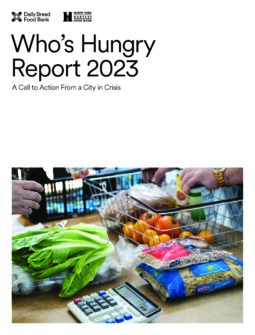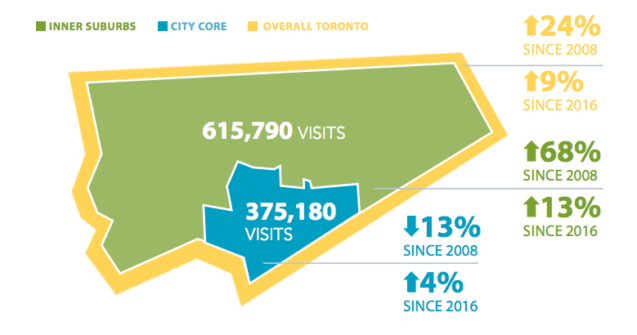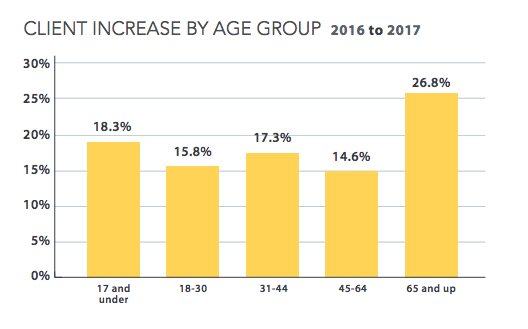Who’s Hungry Report 2023
Comments Off on Who’s Hungry Report 2023Who’s Hungry Report 2023
In partnership, Daily Bread Food Bank and North York Harvest Food Bank have released the 2023 Who’s Hungry Report, a profile of food insecurity in the City of Toronto.
The report reveals a grim reality: 1 in 10 people in Toronto are now relying on food banks to make ends meet. Last year that number was 1 in 20.
ACCESS THE REPORT GET THE SNAPSHOT
During the reporting period, there were 2.53 million visits to food banks in Toronto – a 51% increase over last year and the highest annual increase ever recorded.
Food insecurity is at crisis levels in Toronto. More households are being pushed into poverty due to four key factors.
Soaring housing costs
- After paying rent and utilities, food bank clients have a median of $6.67 left per person, per day for food and all other necessities. This is a significant drop from $8.01 last year
Food inflation
- Nearly 1 in 3 (31%) food bank clients went a whole day without eating and more than half (55%) of food bank clients missed a meal to pay for something else
Stagnating wages
- Despite inflation rising by 11% since 2021, the median hourly wage ($16) and median weekly hours worked among food bank clients have remained the same during this period
Insufficient social assistance rates
- Of the 35% of food bank clients who have a disability, 61% rely on social assistance for income, which leaves them at least $1,000 below the poverty line each month
There was a 154% increase in the number of individuals who accessed food bank services for the first time last year. Food banks are at their breaking point.
“The report’s findings, while heartbreaking, are not a surprise. Food banks are being counted on to address the immediate needs and our sector simply cannot solve this crisis on its own,” says Ryan Noble, Executive Director, North York Harvest Food Bank.
“To truly eradicate hunger, it takes more than food banks raising food and funds. There is an urgent need for collaboration and real action among the government, the private sector and food banks.”
To affect real change urgently needed in the sector, we are calling for the following:
- The Government of Canada to rapidly design and implement an adequate and accessible Canada Disability Benefit so that eligible recipients begin receiving the benefit by 2025.
- The Government of Ontario to commit to a minimum of 300,000 units of permanently affordable and supportive homes in Ontario over the next 10 years, with a minimum of 50,000 in Toronto.
- The City of Toronto to ensure Toronto’s forthcoming Poverty Reduction Strategy Action Plan provides concrete actions, with funding attached, to prevent food insecurity and promote resiliency among Toronto’s community food programs.
North York Harvest Food Bank’s vision is a community where all members are able to meet their food needs, and we will continue to strive for that through dignified food assistance, education, advocacy, and long-term food solutions.
To read the full report and detailed recommendations, click here.





